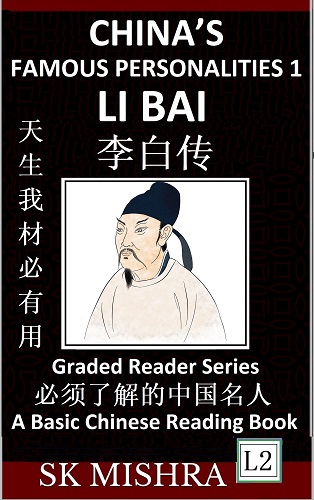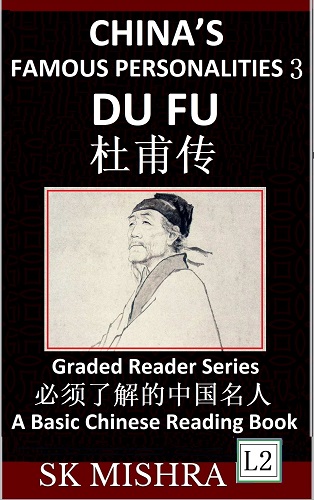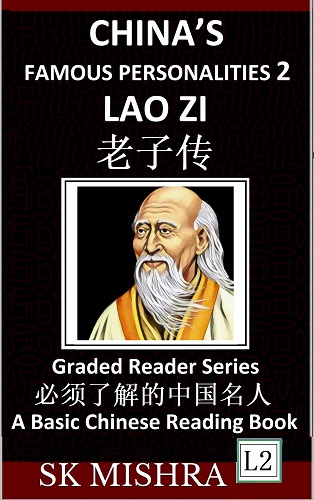During the course of its 5,000 years long history, China has produced a variety of influencing people. The list includes Confucius (孔子, ancient philosopher), Qin Shi Huang (秦始皇, the first emperor), Liu Bang (刘邦, the founding emperor of the Han Dynasty), Li Bai (李白, poet), Lao Zi (老子, philosopher, founder of Taoism), Yang Guifei (杨贵妃, one of the four most beautiful women in ancient China), Du Fu (杜甫, poet), Shang Yang (商鞅, pre-Qin legalist), etc. They are indeed some of the very important Chinese personalities worth knowing as they have left a unique impact on Chines history.
For example, Shang Yang proposed ideas for how the kingdom should be ruled with an iron fist. Qin Shi Huang unified the seven warring states (战国), founded a unified China and followed the ideas of Shang Yan (and ruled China with an iron fist). Even now in 2020, you can feel that some of Shang Yang’s philosophies are still part of China’s governance system.
You may like or dislike these Chinese giants; however, the fact is, they are well-known in China. Their life stories are often part of school textbooks. So if you are learning Mandarin Chinese, it’s recommended to know them. At least a basic idea about their life is absolutely a must!
In this blog-post, I am going to recommend you a set of books for reading biography of famous Chinese people.
Btw, if you are a beginner, don’t forget to check out the following resources for learning Chinese characters (you may also want to check out the author’s home page as well; for readers in Japan, please click here Amazon Japan):
Learn Chinese Language and Culture
Here are some of the related books/resources to learn Chinese language fast:
- Level 1: Chinese Reading Books (Chinese Elementary/Primary School Education Series)
- Level 1: Chinese Reading Books (Chinese Short Story Series, 500+ characters)
- Level 1: Chinese Reading Books (Journey to the West Series, 600 characters)
- Level 2: Chinese Reading Books (Biographies of China’s Famous Personalities, 600 characters)
- Level 2: Chinese Reading Books (Chinese History Series, 900 characters)
- Level 2: Chinese Reading Books (Chinese Reading Comprehension, TEST SERIES, 600+ characters)
- Level 3: Chinese Reading Books (Chinese Culture Series, 1000 characters)
- Level 4 & 5: Chinese Reading Books (Chinese Geography and Economy Series, over 1000 characters)
- Level 6: Chinese Reading Books (Chinese Classical Literature Masterpieces, about 1300 characters)
Level 2: China’s Famous Personalities Series: Reading Books with Pinyin
Here is the list of books/Biographies for China’s Famous Personalities:
China’s Famous Personalities 3: Du Fu
Du Fu (杜甫, 712-770), also known as Poet-Sage (诗圣), was a great realist poet (伟大的现实主义诗人) in China’s Tang Dynasty (唐朝, 618-907). Although Du Fu’s reputation was not prominent during his lifetime, his reputation eventually spread far and wide, which had a profound impact on Chinese and Japanese literature. In particular, Du Fu’s influence in Chinese classical poetry is very far-reaching. Sometimes reading Du Fu’s poems may feel depressing, however, after a careful thinking, they’ll move a noble soul. In fact, the reputation of Du Fu is not only because of his high literary attainment or because he has left many wonderful poems that have been handed down to this day, but it’s because many of his poems have revealed his sad and compassionate thoughts and sentiment. As such, a total of about 1500 poems by Du Fu have been preserved, and most of them are collected in the Du Gongbu Collection (杜工部集). Du Fu used these poems to record the suffering and happiness of the contemporary China. That’s why Du Fu is also called “Poet Saint” by his descendants, and his poetry is called History of Poetry (诗史).
- Paperback (ISBN 9798887341149): Amazon
- Paperback (ISBN 9798887341149): Barnes & Noble
China’s Famous Personalities 2: Lao Zi
Lao Zi/Lao Tzu (老子, 571 to 471 BCE), surnamed Li (李), was an ancient Chinese thinker, philosopher, writer and historian. He was the founder of Taoism School (道家学派), strongly rooted in the Doctrine of Morality. He is believed to have lived during the Spring and Autumn Period (春秋时期, 770 to 476 BCE), however, his date of birth/death and native place remain controversial. In the Tang Dynasty, he was reputed to be the ancestor of the surname Li. During the course of more than two millenniums, Lao Zi’s thoughts had a profound influence on the development of Chinese philosophy. Lao Zi’s handed down work, Tao-te Ching/Daode Jing 《道德经》, a core text of Taoism, is one of the world’s largest books in circulation. As such, Chinese people regard him as a highly revered cultural and historical celebrity.
- Paperback (ISBN 9798887341132): Amazon
- Paperback (ISBN 9798887341132): Barnes & Noble
China’s Famous Personalities 1: Li Bai
Li Bai (李白, 701-762), also known as Poet Immortal (诗仙), famous for his poetic romanticism (浪漫主义), was a great poet from China’s prosperous Tang Dynasty (唐代, 618-907). Li Bai authored over 1000 Chinese poems and most of his work survives until today. Chinese people like to describe the magnificent and romantic era with the prosperous Tang Dynasty. Li Bai and his poems are the most typical personal and artistic symbols of the prosperous Tang Dynasty. In fact, Li Bai is not only the most outstanding romantic poet in ancient China, but also an ancient poet with the highest folk awareness. His poets about nature, women and children are known through all ages. In the history of Chinese poetry, Li Bai’s status is definitely an insurmountable peak. As such, Li Bai’s esoteric compositions have influenced generations for over thousands of years.
- Paperback (ISBN 9798887341125): Amazon
- Paperback (ISBN 9798887341125): Barnes & Noble
I will regularly update the list, so do stop by, at least once in a while!
That’s all in this post about How to Learn Chinese by Reading Practice Books. If you have any question about learning Mandarin Chinese, traveling, living or working in China, do let me know in the comments! Feel free to post in our forum so that others could also contribute and learn. For regular updates like us on Facebook, or follow on Twitter!
If you find the write-ups useful, don’t forget to buy me a beer!
Wish you a great time learning Mandarin Chinese!
Cheers!
Last updated: Thursday, December 15, 2022


